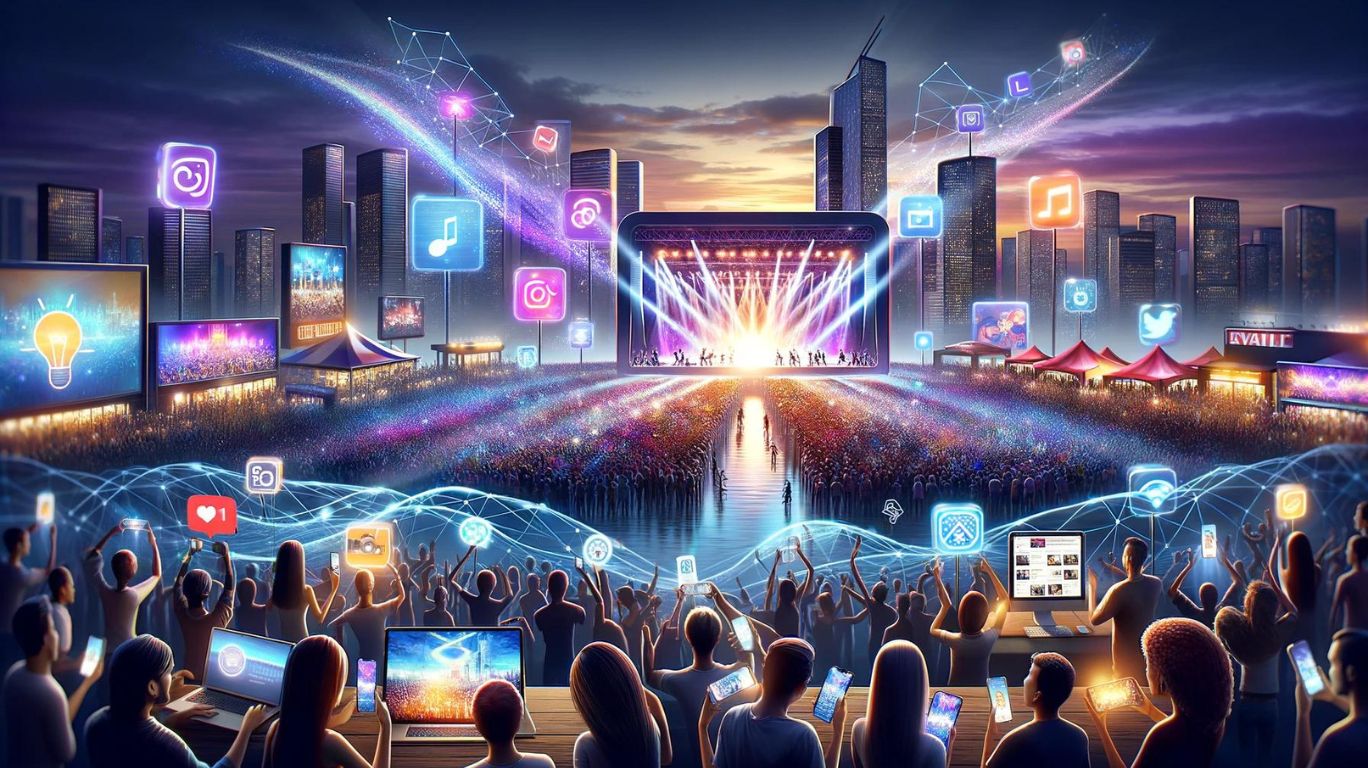In today’s digital age, effective event promotion is crucial for ensuring the success of any gathering, whether it’s a corporate conference, a festival, a workshop, or a product launch. Leveraging digital marketing strategies can help you reach a broader audience, engage potential attendees, and ultimately drive more registrations. Here’s a comprehensive guide on how to use digital marketing for event promotion.

Table of Contents
Toggle1. Define Your Target Audience
Understanding your target audience is the first step in any successful marketing campaign. Identify the demographics, interests, and behaviors of your potential attendees. This information will help you tailor your marketing messages and choose the right channels to reach them.
2. Create a Compelling Event Website
Your event website serves as the hub for all information related to your event. Ensure it includes:
- Event Details: Date, time, location, agenda, speakers, and registration information.
- Visual Appeal: Use engaging visuals, videos, and graphics to capture attention.
- Call-to-Action (CTA): Make it easy for visitors to register with prominent CTAs.
- SEO Optimization: Optimize your website with relevant keywords to improve search engine visibility.
3. Utilize Social Media Marketing
Social media platforms are powerful tools for event promotion. Here’s how to make the most of them:
- Create Event Pages: Set up event pages on platforms like Facebook and LinkedIn to provide updates and engage with attendees.
- Share Engaging Content: Post regular updates, behind-the-scenes content, and speaker highlights to generate excitement.
- Leverage Hashtags: Create a unique event hashtag to facilitate conversations and make it easier for attendees to find information.
4. Implement Email Marketing Campaigns
Email marketing is a direct way to reach potential attendees. Follow these tips for effective campaigns:
- Build an Email List: Gather email addresses through your website, social media, and previous events.
- Segment Your Audience: Send targeted emails based on attendee interests and demographics.
- Create Engaging Content: Craft compelling subject lines and content that highlights the value of attending your event.
5. Invest in Paid Advertising
Consider using paid advertising to amplify your reach. Some options include:
- Social Media Ads: Use targeted ads on platforms like Facebook, Instagram, and LinkedIn to reach specific audiences.
- Google Ads: Run search and display ads to target users searching for related events.
- Retargeting Campaigns: Use retargeting ads to reach people who visited your event website but did not register.
6. Collaborate with Influencers
Partnering with influencers in your industry can help you tap into their audience and build credibility. Reach out to influencers who align with your event theme and ask them to promote your event through their channels.
7. Utilize Event Listing Websites
List your event on popular event platforms like Eventbrite, Meetup, and local event calendars. These platforms can help increase visibility and attract attendees who may not be familiar with your brand.
8. Create Engaging Content
Content marketing is a great way to build interest in your event. Consider:
- Blog Posts: Write articles about the topics that will be covered at the event or interviews with speakers.
- Videos: Create promotional videos that highlight what attendees can expect and share them on social media and your website.
- Webinars: Host pre-event webinars to provide valuable content and generate interest in your event.
9. Monitor and Analyze Performance
Use analytics tools to track the performance of your digital marketing efforts. Monitor website traffic, social media engagement, email open rates, and registration numbers. Analyzing this data can help you refine your strategies for future events.
10. Engage with Attendees Before, During, and After the Event
Engagement doesn’t stop once attendees register. Keep the conversation going:
- Pre-Event: Send reminders and additional content to keep excitement high.
- During the Event: Use live social media updates and encourage attendees to share their experiences.
- Post-Event: Send thank-you emails, share highlights, and gather feedback through surveys.
Conclusion
Utilizing digital marketing for event promotion can significantly enhance your reach and engagement. By combining various strategies—such as social media marketing, email campaigns, influencer partnerships, and compelling content—you can create a buzz around your event and ensure its success. Start planning your digital marketing strategy today, and watch your event thrive!


No responses yet